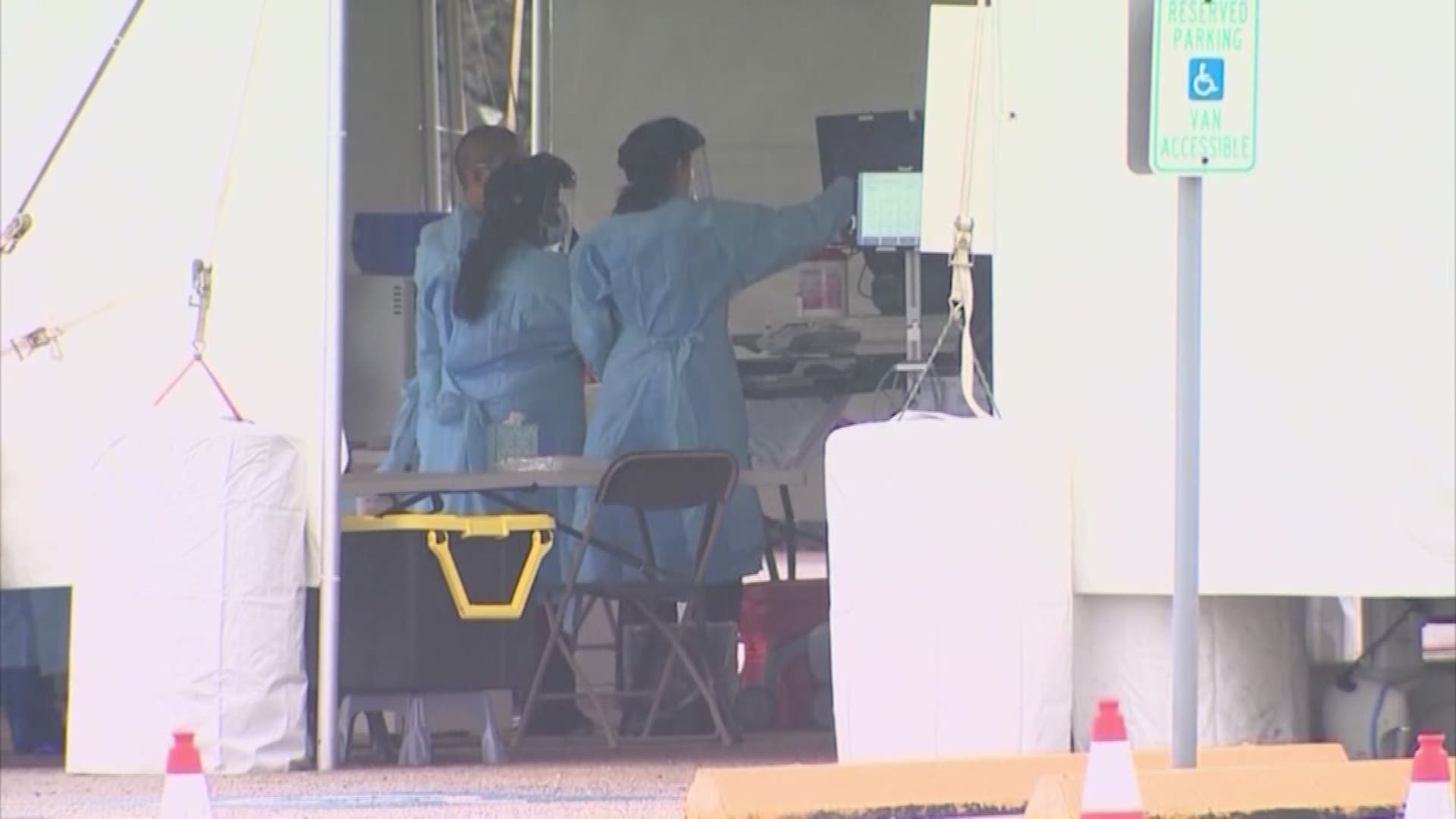HOUSTON — Mayor Sylvester Turner said Thursday the city will have enough supplies to keep its city’s drive-through COVID-19 testing site running through Saturday.
That site had been in danger of shutting down had the supplies not come through.
Turner said that one site has tested more than 1,100 people for COVID-19 since Saturday.
FEMA gave the city the green light to open a second testing site, but due to limited resources, Turner said the city will stick with just one site.
“Because everyone across the country are looking for these PPEs (personal protective equipment)…we just can’t rely on the shipment that we’re getting from FEMA,” Turner said. “The city of Houston, like others, are going to the private marketplace.”
The mayor said the high demand has sparked a bidding war.
“N95 masks used to cost 50 cents,” Turner said. “Today, I gave the approval to pay $5.56 for an N-95 mask. Two days ago, I gave the approval for $4 and the vendor came back and said, ‘Sorry, city of Houston, you were outbidded and we will not honor that request.' That is what’s happening in the private marketplace.”
Turner said he’ll seek approval from city council to pull $5 million from the city’s economic stabilization fund to buy more supplies and lease hotels to house essential employees, the homeless and others who cannot quarantine at home.
Harris County Judge Lina Hidalgo said Thursday the county received enough supplies from FEMA to keep their two testing sites outside city limits running another five days.
Hidalgo also approved a waiver to let Houston Community College use 3-D printers to make face shields for health care workers. She says once its fully operational, that partnership with TX/RX labs could produce around 30,000 face shields per day.
Houston businessman Farouk Shami announced Thursday he will donate $1 million worth of hand sanitizer produced by his beauty products company, Farouk Systems, to the city of Houston.
Coronavirus symptoms
The symptoms of coronavirus can be similar to the flu or a bad cold. Symptoms include a fever, cough and shortness of breath, according to the Centers for Disease Control. Some patients also have nausea, headaches and stomach issues.
Most healthy people will have mild symptoms. A study of more than 72,000 patients by the Centers for Disease Control in China showed 80 percent of the cases there were mild.
But infections can cause pneumonia, severe acute respiratory syndrome, kidney failure and even death, according to the World Health Organization. Older people with underlying health conditions are most at risk for becoming seriously ill. However, U.S. experts are seeing a significant number of younger people being hospitalized, including some in ICU.
The CDC believes symptoms may appear anywhere from two to 14 days after being exposed.
Human coronaviruses are usually spread through...
- The air by coughing or sneezing
- Close personal contact, such as touching or shaking hands
- Touching an object or surface with the virus on it, then touching your mouth, nose or eyes before washing your hands.
Help stop the spread of coronavirus
- Stay home when you are sick.
- Eat and sleep separately from your family members
- Use different utensils and dishes
- Cover your cough or sneeze with your arm, not your hand.
- If you use a tissue, throw it in the trash.
- Follow social distancing
Lower your risk
- Wash your hands often with soap and water for at least 20 seconds. If soap and water are not available, use an alcohol-based hand sanitizer.
- Avoid touching your eyes, nose, and mouth with unwashed hands.
- Avoid close contact with people who are sick.
- Clean and disinfect frequently touched objects and surfaces.
- If you are 60 or over and have an underlying health condition such as cardiovascular disease, diabetes or respiratory illnesses like asthma or COPD, the World Health Organization advises you to try to avoid crowds or places where you might interact with people who are sick.
Get complete coverage of the coronavirus by texting 'FACTS' to 713-526-1111.

